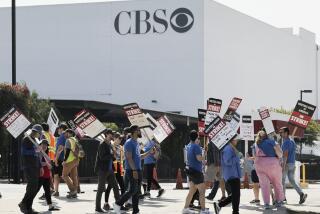TWA Takeover Is in the Works : Airlines: Employees and creditors are trying to negotiate a deal with the carrier’s controversial Chairman Carl Icahn.
- Share via
Trans World Airlines on Monday said that its creditors and employees are negotiating to take over the troubled airline in a deal that would end the stormy reign of owner and Chairman Carl C. Icahn.
The proposed takeover--one of many such deals the airline has contemplated in recent months--would save TWA hundreds of millions of dollars in interest and labor costs. But the cuts would not ensure the airline’s long-term survival, according to industry analysts.
“It has the possibility of making them viable, but it’s still going to take a lot of work,” said Harold Sirkin, a transportation specialist at Boston Consulting Group.
Under terms still being negotiated, TWA said employees would take a 15% cut in pay and benefits in return for a 45% stake in the company. The remainder would go to creditors, who would forgive much of the $1.5 billion owed them. The reduction in debt and labor concessions would result in an estimated $400 million a year in savings, TWA said.
In addition, Icahn would put in $150 million to prop up the financially struggling carrier until the transfer of ownership is completed, the company said.
“While no agreement has been reached as yet, this arrangement is designed to make TWA stronger and ensure its future as an independent carrier,” the company said.
The takeover by TWA creditors and workers would mean the departure of colorful and controversial Icahn, one of the 1980s’ best-known corporate takeover artists. Hailed by the unions as a white knight when he outmaneuvered rival Frank Lorenzo for control of TWA in 1986, Icahn was soon being accused by workers of looting what was once one of the nation’s premier carriers. Under Icahn, TWA sold off precious international routes and took on massive debt when it was taken private.
Getting a figure as controversial as Icahn out of the picture may help the airline’s rebuilding efforts, said Barbara Beyer, president of Avmark, a Washington-based aviation industry consulting firm.
“Unfortunately, TWA has been too closely identified with Icahn,” said Beyer. “The guy loved to do deals. But not everybody loves to deal like he does.”
The company did not say what the current negotiations mean for previous restructuring and takeover proposals. A few weeks ago, TWA said it had spoken to USAir about selling portions of the airline as part of a three-way deal involving British Airways. In January, when TWA filed for Chapter 11 federal bankruptcy court protection, bondholders agreed to exchange about $1 billion in debt for most of Icahn’s 90% ownership stake in TWA.
The talks among Icahn and TWA’s creditors and unions leave unresolved several thorny issues, including the airline’s under-funded pensions. On Monday, the Pension Benefit Guaranty Corp., the federal agency that insures pensions, opposed the deal, saying it would make it harder to cover a $1-billion shortage in TWA’s pension fund. The PBGC has been attempting to hold Icahn and his affiliated companies responsible for the shortfall.
Even if TWA were able to overcome the numerous hurdles to a takeover, the airline and the new owners would face a long and hard struggle to remain viable in a tumultuous industry. Over the past two years, the recession and impact of the Gulf War have pushed two other venerable carriers--Pan American World Airways and Eastern--out of business while leaving the rest of the industry with massive losses.
TWA has managed to survive by offering bargain fares, cutting costs and selling off its valuable transatlantic routes to raise cash. But as it shrank, carriers like American, United and Delta rose to dominate the industry and capture most of the nation’s passenger traffic. TWA was left with an old fleet of planes, hostile management-labor relations and a reputation for poor service that sent full-fare-paying business passengers to competitors.
The task and cost of turning around its poor public image, restoring service and regaining lost passengers might overshadow any benefits gained from labor and creditor concessions, said Donald S. Garvett, a vice president at Simat, Helliesen & Eichner, a New York aviation industry consulting firm.
“TWA’s biggest problem is that they are not the preferred choice of a lot of travelers,” said Garvett. “That’s related to financial concerns and to a decline in service quality.”
Transportation specialist Harold Sirkin at Boston Consulting Group said cost cuts under the proposed takeover will allow TWA to compete more effectively on the basis of prices. However, “it will take a lot of work to lure back the business traveler.”
But first, said Beyer at Avmark, the workers and creditors will have to select and support a hard-nosed manager to make the difficult decisions necessary to keep TWA from going the way of Pan Am.
“You are going to have to cut costs. You are going to have to reorganize. You are going to have to be aggressive,” said Beyer. The workers and creditors “are far too close to the airline to make the hard decisions that are necessary.”
More to Read
Inside the business of entertainment
The Wide Shot brings you news, analysis and insights on everything from streaming wars to production — and what it all means for the future.
You may occasionally receive promotional content from the Los Angeles Times.










